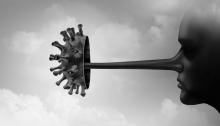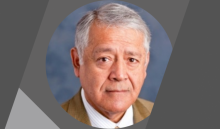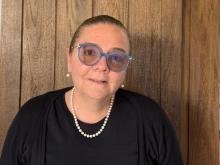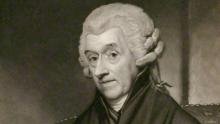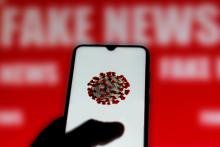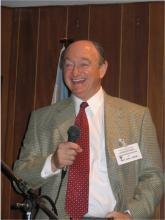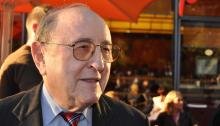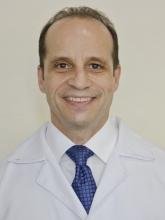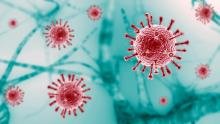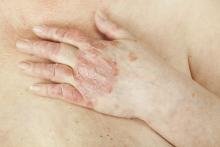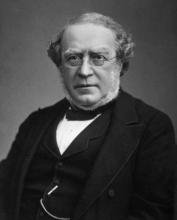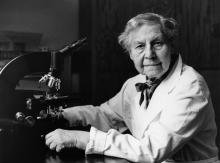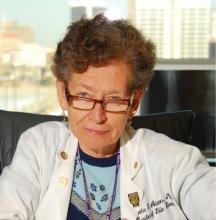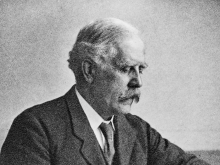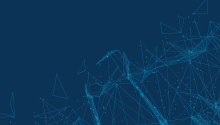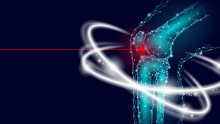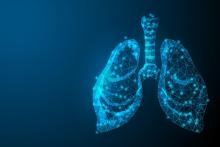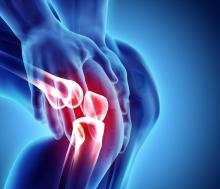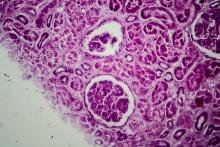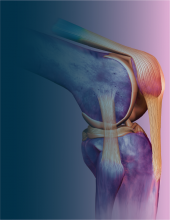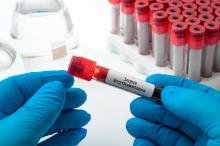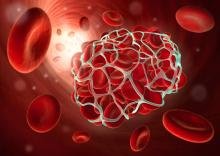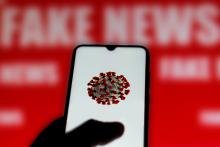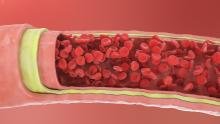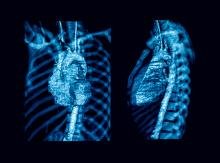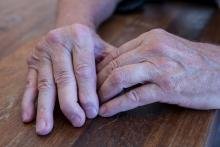E- ISSN: 2709-5533
Vol 4 / Jan - Jun [2023]
globalrheumpanlar.org
Columns
To sense or dissent
Author: Alberto Palacios, Jefe del Departamento de Inmunología y Reumatología del Hospital de los Angeles Pedregal en CDMX
DOI: https://doi.org/10.46856/grp.22.e146
Cite: Palacios A. Sentir o disentir. Global Rheumatology. Volumen 4 / Ene - Jun [2023]. Available from: https://doi.org/10.46856/grp.22.e146
Received date: 21/12/2022
Accepted date: 12/01/2023
Published Date: 27/01/2023
Interested in the therapeutic response that I usually predict in my chronically ill patients, I bring to the fore a phenomenon that is enigmatic in itself: the placebo effect. This issue has had ethical aspects, because in many clinical trials it is considered amoral to compare a potentially useful drug against an inert one. Moreover, blinding patients under the scrutiny of a presumed pharmacological effect is considered –by many groups of researchers– an abuse of authority and perhaps an abuse of the individual's power of decision.
Perhaps this last point of view perverts science as a pseudo-religion, where dogmatism precedes observation. When the Royal Society was founded (in London, November 1660), by far the first body to embrace the value of observation and description of phenomena to document them and establish universally testable laws, a decisive step was taken in the natural sciences. Since then, astronomer Christopher Wren and natural philosopher Robert Hooke (the first curator of experiments of that body) established the criteria of scientific truth and the need to make all reported findings verifiable (its official organ was the Philosophical Transactions).
In this sense, scientific verification, ideally by means of reliable replication of the experimental processes that account for a hypothesis, is the recognized method of acquiring knowledge. All of us who practice some form or another of scientific work - in the various fields of the exact, natural or applied sciences - accept such rigor.
Medicine is no exception. Although admittedly, being a Tekné, it is subject to the verification and updating of its truths, which can hardly be generalized by repeating measurements in experimental subjects (the more and more genetically varied, the better), no one would dare to say that everything is written in health and disease. In other words, cellular and molecular theories are constantly being challenged, and that itself enhances the virtue of medical work and the recurrence - as much as the disagreement - of its publications.
What we have adopted is a system of vigilance, of experts without commercial or personal bias, who assess the validity of certain approaches to pathological phenomena, accept their review and subsequently publish them in quality and reference journals.
Today, clinical guidelines, evidence, meta-analysis and consensus follow the same trend and thus allow their generalization for the benefit of patients. But they are far from being absolute truths like the laws of thermodynamics or mathematical formulas. They are in fact conclusions derived from empirical approaches, reinforced by remote confirmations and peer ratification, which verify the standards of the experiment or its documentation, and endorse them. Nothing more - and nothing less.
To affirm that the loss of more than 40% of circulating volume is almost incompatible with life, because it causes hypovolemic shock that is difficult to reverse, is the product of repeated observations in accidental, emergency or weapon-injured conditions that corroborate such an affirmation, in any place and in any subject. Quite close to a universal law for the human race by the way, although no one would dare to call it so. The same can be said of oxygen, heart rate, transaminases or tumoral load, for practical purposes.
The practice of medicine is obviously governed by humanitarian laws and, as such, it is not morally acceptable to investigate whether a subject deprived of heat or water can survive more than 48 hours, compared to one limited for less or more time. This is plainly cruel and leads to nothing constructive for humanity or the welfare of the sick. Hence, bioethical dogmas have arisen that extend like an umbrella to all experimental or clinical work. I refer to the principles of beneficence, non-maleficence, autonomy and justice, which have proven to be both useful and preventive (I should add that such grotesque experiments were the substance of the criminal work of Dr. Josef Mengele and his front men at Auschwitz).
Looking for an inert substance to confirm whether the drug under test has a significantly superior effect has been an accepted experimental procedure for several centuries. The word placebo etymologically means "to please" (applied at funerals since the 14th century) and was adapted in medicine from the end of the 18th century. At that time, it was defined as an epithet given to any medicine used more to please than to benefit the patient. Such a definition encounters an ethical contradiction in the strictest terms, because it does not procure the benefit of the patient and it disappoints the patient's autonomy to decide what he/she prefers under a therapeutic purpose.
The first scientific validation of the placebo effect dates back to 1938, when a control group was established to study the efficacy of vaccines against the common cold (1). The purpose of the clinical trial was obvious: vaccinating with inert solutions does not outperform active vaccines in preventing influenza. Karl Popper would be very pleased. But first and foremost, the scientific world noticed that the practice of medicine was under scrutiny and introduced a verifiable method without bias or preference, something much criticized in previous studies dictated only by intuition and arbitrary benefit.
In any case, the problem lies in the fact that the placebo effect has been downplayed as an arithmetic subtraction of the effectiveness of drugs or therapeutic interventions, rather than a thorough study of what lies behind it in the psychological and pharmacodynamic realm for it to have such an impact. All of us who practice medicine, without wishing to disappoint the anguish that accompanies any ailment, have experienced the incidence of placebo, from attentive listening to the magic pill that attenuates pain, functional symptoms or simply suffering. How many times are our prescriptions written in such a way that implicitly the placebo effect underlies the dose, periodicity or extension of the treatment? Without what we call "art", which comes from the origins of the Hippocratic tradition, our interference in the life and recovery of the sick would be seriously limited.
Moreover, patients and their families are grateful for the fact that when we prescribe a drug, we are certain that its physiological effects will be more solid and less harmful than the administration of a sugar tablet; that it will modify the natural history of the disease, in a truthful and verifiable way. Therein and little more than this lies the credibility of our profession.
If we were to prescribe by force of inclination or presentiment, governed by daily experience or by the suggestion of other colleagues or representatives of the pharmaceutical industry, we would not only be defrauding the trust of our patients, but we would also be defrauding scientific medicine and our professional vows. To prescribe without knowledge, without control of side effects, without verification of the pharmacological results obtained through double-blind studies and supported by statistical analysis, is to practice witchcraft or alchemy; it is to throw away centuries of human effort and creativity. A physician who has studied for years and has sacrificed other paths to help others cannot indulge in such aggravation.
Indeed, we know little about what makes a prescription modify the symptoms or change the physicochemical state of a condition, whether by psychological induction, by appearance or by the presentation of a placebo. Its experimental utility is not in doubt. Although it is criticized for hiding the objectivity of an intervention from the patient, the placebo function allows and has allowed for eighty-four years to control and verify our curative attempts.
Numerous works (2, 3) have given an account of the intentionality or transfer of affect at play during the medical consultation. On the one hand, the investiture of the physician with all his charismatic power, sometimes overrated but whose influence is unquestionable (4). On the other hand, the fragility of the patient, who expects from this relationship a lessening of the helplessness in which his condition has plunged him, which he is unable to decipher because it exceeds his body and emotional language. In the face of such an equation, medication is a virtuous garment; it is the key to rediscover health, that unspoken dimension that we disdain until it is outraged.
The placebo falls into this imaginary enclave (5). A drug with no pharmacological mechanism in the strict sense, which lacks milligrams or doses, which does not transit through the cytochromes or the endothelium, and which theoretically does not modify any function because it does not neutralize any receptor or circulating molecule. However, it does act. In variable proportions when compared to the active drug under test, the placebo makes itself felt and follows like a ghost the shadow of the effect being studied. The induction of the researcher, who tells the subject that he will receive a drug whose potential results are such and such, is enough to set in motion an internal mirror, driven by drives and desire, which reflects an unexpected change. Very exceptionally, this effect is invaluable, for it always shows with fascination how the soul (the mind, the unconscious) knows more about what it requires than pharmacokinesis.
Medicine is complex, as are people and our homeostatic mechanisms. To believe is not to know. The latter requires tests, confirmations, failures and successes. Scientific knowledge is built through observations that come and go, that are cross-checked, corrected and graphed. Thanks to this methodology we save lives, prevent catastrophes and modify outcomes.
Human beings are improvable and our healing tactics are inferential in principle; valid only if ratified in practice. The use of inert substances to contrast a pharmacological effect is a resource that has opened up that dimension of the ethereal that sounds like magic, but which is simply the experiential diversity of our species, as worthy of study as metastasis or tyrosine kinases.
I urge you to think about it, to read about it, to discuss it with friends and strangers. The placebo effect is not negligible; it exists and it changes the course of a clinical picture, for better or for worse. If we could understand its vicissitudes without belittling it or taking it for granted, we would provide our patients and science in general with a valuable tool to avoid more harm and generate more recognition in our work for the well-being of others.
In closing (and toning down the sobering tone of this piece), I must admit my delight at the arcane nature of such an effect (6). Patients and physicians coincide in an evanescent dimension of reality where there is room for hope and disappointment. In such a dialectic proscenium lies everything that we do not know and that we try to find out about the unconscious link.
Bibliography
- DIEHL HS. Cold Vaccines. Vol. 111, Journal of the American Medical Association. American Medical Association (AMA); 1938. p. 1168. Available from: https://doi.org/10.1001/jama.1938.02790390024008
- The Illness Narratives by Arthur Kleinman | Basic Books Available from: https://www.basicbooks.com/titles/arthur-kleinman/the-illness-narratives/9781541647121
- Jason Aronson. Enactment: Toward a New Approach to the Therapeutic Relationship, edited by Steven Ellman and Michael Moskowitz, Jason Aronson, 1998, 210 ps.
- Gawande, Atul (2003). Complications. A Surgeon’s Notes On An Imperfect Science. Nueva York: Picador.
- Kaptchuk TJ, Miller FG. Placebo Effects in Medicine [Internet]. Vol. 373, New England Journal of Medicine. Massachusetts Medical Society; 2015. p. 8–9. Available from: https://doi.org/10.1056/nejmp1504023
- Palacios Boix, Alberto (2019). Espectros íntimos. Apuntes en torno al miedo. Siglo XXI editores, México.












